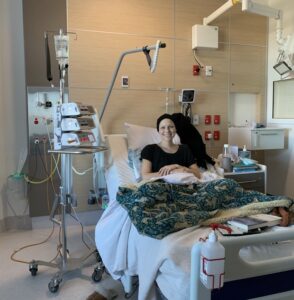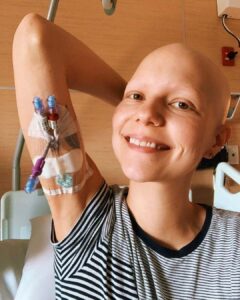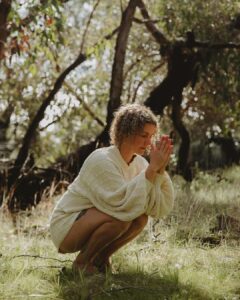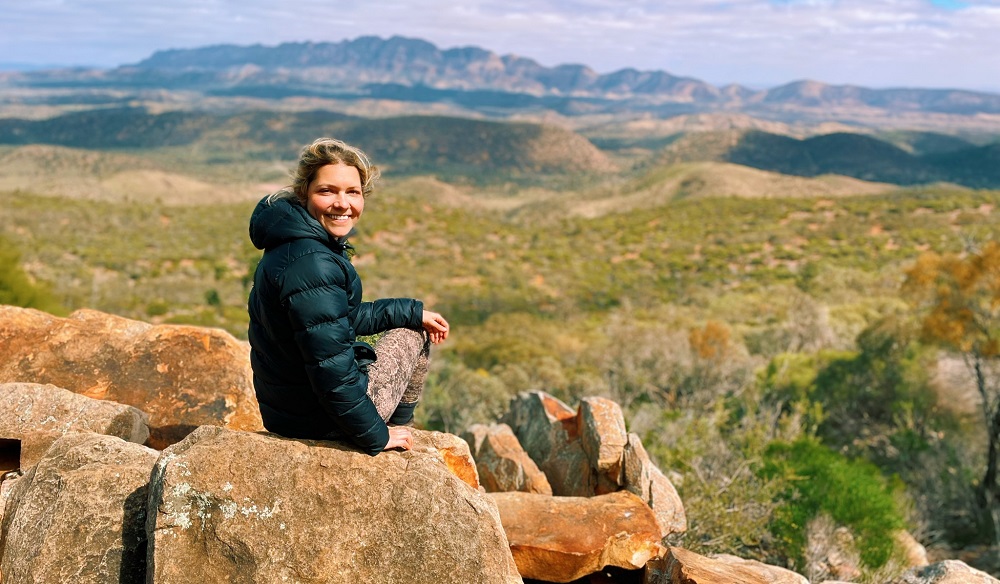How Sophie Gray found new meaning through blood cancer
In early 2019, Sophie Gray moved to Adelaide from the UK and was excited to start a new adventure working and travelling in Australia.
After having a routine blood test, Sophie’s GP told her that there was something “a bit off” in her results. With a plan to have another blood test in a month, Sophie flew back to the UK to spend time with family and friends, not giving it much more thought.
“While I was over there, I was feeling really tired, really fatigued, but I just put it down to jet lag. We were going to gigs, seeing family, and just doing everything like a normal 29-year-old person would be doing,” recalls Sophie.
A shock diagnosis
When Sophie arrived back in Australia, she had a follow-up blood test. Further tests revealed she had acute myeloid leukaemia, a type of blood cancer that affects the blood and bone marrow.
“To be told that my bone marrow was failing was just such a complete shock. I couldn’t believe it,” says Sophie.
Dealing with change

“I had to go through treatment, go through the stem cell transplant, whilst watching my friends have fun, have babies, get married, and do all of the things that you expect to be doing when you’re 29, into, ‘Well, I’ve just got to try and survive.’ ”
“It was incredibly hard for me to try and deal with what life looks like in the future when your whole world has been shaken, when you don’t know if you’re going to be around for five years, 10 years, 20 years,” says Sophie.
Support from others
Hoping to learn from others, Sophie used social media to find a community of people going through blood cancer treatment.
“We were all following each other’s journeys and providing each other with support. And having that like-minded mentality and knowing what you’re going through was truly a big support for me, as well as my friends and people here that I could see face to face,” says Sophie.
Finding a new normal

“It was so beneficial in coming to terms with what was happening and being able to move through that space and realizing what I had already achieved, what I wanted to do, and living in that space after cancer treatment,” says Sophie.
“It helped to really establish… to use an overused phrase sometimes … the new normal. It is a phrase that I really resonate with because I don’t think that I ever got back to the person that I was before cancer treatment. I think I changed into someone else. And that person is who I relate to now and who I feel most aligned to.”
A new purpose
Sophie believes her blood cancer experience helped her to clarify how she wanted to approach life going forward.
“I faced my mortality and thought, ‘I’m going to have this stem cell transplant and there’s only X amount of chance that I will live for five years. So how do I make those five years the best five years that I can?’ I didn’t want to be wasting time anymore,” says Sophie.
Asking herself these questions led Sophie to a new path.
Meaning through yoga

To celebrate her “rebirthday” one year after her stem cell transplant, Sophie did something she’d been hoping to do for five years – undertake training to be a yoga teacher.
“I could never really find the time or justify the expense. And then I finally just thought, ‘Hey, now is the time. I should just go and do it.’ I absolutely loved it.”
Sophie has found her passion for teaching yoga in Adelaide and recently realised a new dream – teaching yoga to people going through cancer treatment and after cancer recovery.
“I’ve seen for myself the benefits that this practice can have, not only for your body and your physical rehab, but for the mind and the ability to be still with your body and your mind after treatment, particularly when it almost feels like your body has been taken away from you a little bit.”
“I can’t stop people from getting blood cancer, but what I can do is help people to recover mentally and physically through yoga. I really want to make a difference and use my own experience to help others.”
Help adjusting to your new normal
Being diagnosed with blood cancer will mean lots of changes to your life. Understandably, being able to adjust to the changes in your life may not be easy.
The Leukaemia Foundation’s new Online Support Service provides advice and strategies to help you cope with change. Explore the “Transition to a new normal” module here.
